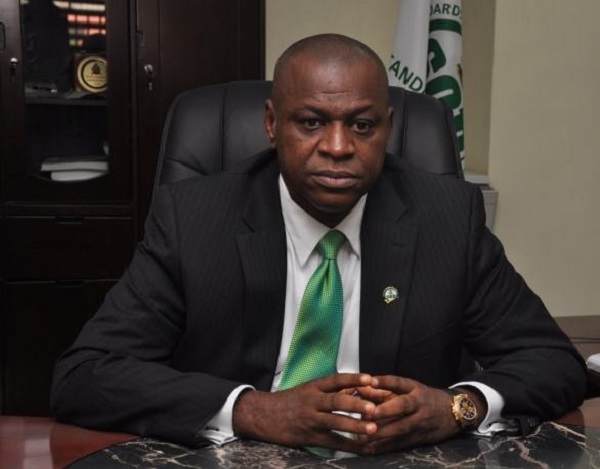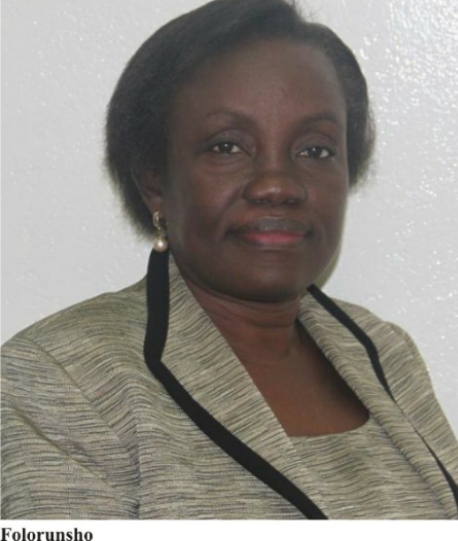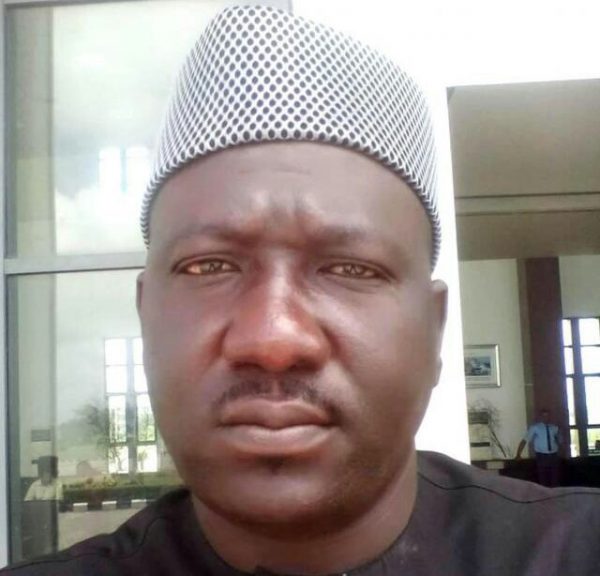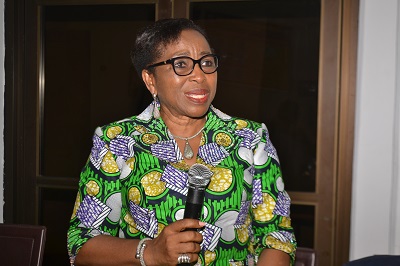Quality Lecturers Are Scarce For New Universities – NMU Vice Chancellor

By Kenneth Jukpor & Ayoola Olaitan
Prof. Emmanuel Adigio is the Vice Chancellor of Nigerian Maritime University (NMU). In this exclusive interview with MMS Plus newspaper, he shares his thoughts on a myriad of issues affecting human capital development in the maritime sector. Enjoy it!
What are the difficulties in NMU’s bid to produce good seafarers for the industry?
The biggest issue has been the acceptability of these trained persons by ship owners. We need ship owners to easily accept students that are going to be trained practically. We have met quite a number of them and we are hopeful that they accept more of our students by the end of this year. Most of our students will be needing this crucial seatim experience and the opportunities are limited.
Is NMU positioned to avail students adequate training that meets international standards?
Of course, NMU has the capacity to provide topnotch training. The issue is that these students need to be onboard ships to have practical experience to complete their training. We have made adequate arrangements for the marine engineers and others to have such experience and that is what we intend to do continuously.
To tap the full benefits from the maritime sector, there is the need to develop qualitative maritime human resources. We recall that the age of continental empires was sustained by trading on the high seas, protected by an arsenal of war ships and pirates. For the modern investor, however, the story has since changed.
Today, the key to profitability in international trading ventures is to identify comparative advantage, and make the best of it. Trading across global frontiers is on the upswing, and becoming even more interactive than ever before. The shape of the maritime sector has changed dramatically over the last thirty years. This can only mean that career development programmes within the maritime sector should be more integrated and that is what NMU stands for.
When the university was established there ought to be a demonstration school for students, a school that will groom students from secondary school to the university?
Yes, we have that structure. We train them from secondary school to the university we have it there now. The institution also has facilities to train students in other areas and even some courses that are not yet introduced are being worked on at the moment.
One of the biggest issues in the industry is the disparity between Nigerian cadets and foreigners in terms of wages and discrimination at work place. Is this something the institution could address?
I am not particularly aware of instances of such differences but some practitioners have raised this concern. If it exists, it is something that should be addressed holistically but I think that with time we would phase it out. We will definitely manage it properly by ensuring our cadets and officers are at par or even better than those coming from other climes. At a time they will stand up to perform because to gain the needed respect, they have to perform too and that is why we are making sure we avail them opportunities to go onboard for hands-on experience. They really need seatime to enable them to compete with any other trained personnel.
What are the realities at NMU; are there specific challenges in the system?
Well, every university all over the world is faced with a major problem of having enough trained manpower and sustaining those employees.
Availability of academicians is a major problem for all universities because they are always scarce and for universities that are just starting up, it is always difficult to have matured trained lecturers to come in and also train and be examples to the younger tutors.
This system of knowledge transfer is very important in ensuring new universities can have the capacity to train students and sustain its status as an apex training institution. However, the present situation in the country is that most universities are not allowed to employ contract staff or retired professors, but these are the people who could train other young ones.
No university will encourage any member of staff trained by the institution to leave for a new university. How then will the new universities come up? That has been a very big problem. We need to use the Internal Generated Revenue (IGR), to be able to train the young ones and that has been a major setback.
Nevertheless, we have the facilities. We own a facility for training divers. On the issue of seafarers, as I mentioned earlier, the challenge is to have ships take the young ones (the students) to have seatime experience of going onboard ships. They ought to travel with the ships to be able to have firsthand experience but this is a big problem.
It’s very expensive for these young people to get into these ships. They pay in dollars for them to be allowed to do seafaring. When they finally become graduates, these ships are in a hurry to take them but they don’t want to train them at the initial stage.
How would you rate the contribution of top agencies in the maritime industry, agencies like NIMASA, NPA etc, to NMU?
They are really helping; but as a new university we can’t get too much support. The point is that we are like an ‘Oliver Twist’. We just keep asking for more despite their contributions; we still need more especially in the area of seafaring to come in to help in funding such programmes where they can pay for students to go out and have the needed experience.
In the shipping industry, the business has been bad for ship owners, a lot of them don’t have jobs and their ships are going aground. Can you link the issue of availability of contracts for ship owners to the onus of capacity building or seatime for cadets?
That is the problem they have pointed out but sometimes it could be political too. If I have the capacity to give out jobs and I’m tied to a political party, I may decide not to give it out to some other persons who belong to another party. That is one thing that is also a problem in this country and it is a major challenge.
As a nation rich in crude oil and involved in export of crude and importation of petroleum products and other consignments, you would expect ship owners to always have cargoes and contracts but that isn’t the case at the moment. This is an issue that has to be addressed speedily so that the indigenous ship owner is better placed to give back to the society by taking onboard Nigerian seamen.
Few weeks ago, some stakeholders argued that every vessel coming into Nigeria should be mandated to put some Nigerians onboard. What’s your take on this motion?
Of course, such a move is very important and if it is well established I think it would be very good for the training of our cadets.
On community relations, what are the benefits for the host community where the university is located?
When students apply to get enrolled in the university, a large percentage of those who come from Delta State and then from the community itself, are usually admitted. There is preference for the host community and the State’s indigenes at large.
So, in the area of admissions, they benefit more. For employment, jobs for certain cardre are also reserved for the host community. Having an institution in a place is like an industry is creating jobs for the people. That’s the secondary effect to creating jobs, food industry and other services. Therefore, the community of Okerenkoko gains from having NMU situated there.







